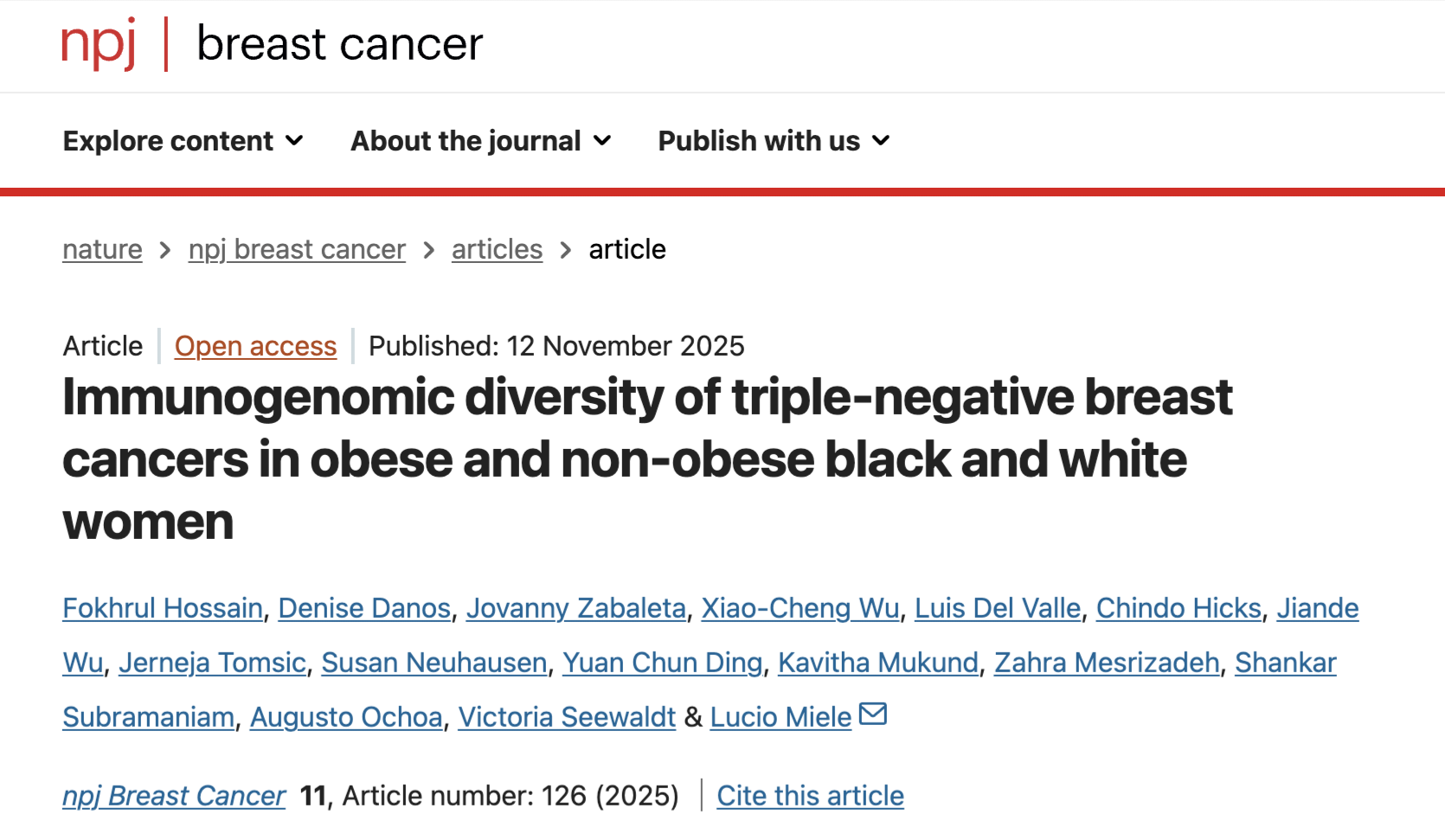
Understanding Louisiana’s new smoking cessation benefit
As of January 1, 2024, Louisiana law will require all health coverage plans offer a minimum 6-month smoking cessation benefit, including private health insurers and Medicaid. The benefits include behavioral counseling (e.g., individual and group counseling) and cessation medication (e.g., nicotine replacement therapy, bupropion, varenicline) but not e-cigarettes because the FDA has not approved e-cigarettes as a cessation aid.
Michael Celestin, PhD, is the director of the Louisiana Tobacco Control Initiative, a program of the LCRC, and a member of the Louisiana Cancer Research Center's Executive Leadership team. He is assistant professor of Behavioral and Community Health Sciences in the LSU Health New Orleans School of Public Health and offered his insights about the new law:
How significant is the new law in the effort to reduce tobacco use in Louisiana?
Act 281 is significant because it creates sustained, comprehensive coverage for insured populations, including those on Medicaid which aids low-income families and children. Data show that Medicaid enrollees smoke at twice the rate (22.7%) of those with private insurance (9.2%). Louisiana Medicaid spends nearly $40 billion annually on treating tobacco-related diseases and disability. Reducing the current smoking rate, by even just 1%, in the Medicaid population in Louisiana could save close to $31.7 million a year in Medicaid costs.
Thus, this law will help reduce smoking among the Medicaid population, reducing healthcare costs for the Medicaid program and improving the health of Medicaid enrollees.
Prior to passage of this law, Medicaid only covered pregnant women for individual and group counseling under fee-for-service and managed care plans varied by plan or pregnancy status. This law helps to standardize coverage for all insured adults moving forward, giving Louisianans comprehensive coverage. The 6-month benefit is the minimum, and in our experience, enough time for two quit attempts per year.
Why were non-insured smokers overlooked?
I don't know, considering non-insured smokers also smoke at twice the rate of those with private insurance.
Smokers pay more for health insurance because of the severe illnesses it causes, so if you don't have insurance, you end up with large healthcare debt. Louisiana is one of several states that are currently requiring Medicaid recipients to certify their eligibility. It is expected to impact several thousand Louisianans, who will lose coverage and therefore, access to the cessation benefit.
What is the Tobacco Control Initiative's strategy to reach those who do not haveinsurance and use tobacco products?
The TCI, a program of the LCRC, was established in 2002 to provide care for the most medically vulnerable Louisiana residents, including low-income, under- and uninsured, less educated, and minority populations. Its strategy is to partner with health systems and clinics that treat under and uninsured patients and provide them free training and technical assistance to develop standardized comprehensive tobacco control programming so no patient falls through the cracks. The TCI provides free behavioral counseling for identified tobacco users by certified tobacco treatment specialists at partner sites, referral to additional counseling like the state Quitline and federal text message interventions, and support with obtaining cessation medication at a free or reduced cost from providers at partner sites.
Smokers and healthcare providers can learn more about our services by visiting our website, www.latci.org.
How many people in Louisiana are non-insured smokers?
In 2022, 20 out of every 100 uninsured U.S. adults smoked, while 22 out of every 100 adults insured by Medicaid smoked. By contrast, less than 9 of every 100 adults with private insurance (8.6%), less than 14 of every 100 adults with other public insurance (13.9%), and about 8 of every 100 adults insured by Medicare only (8.4%) smoked. In 2021, an estimated 258,227 adults were uninsured, and considering Louisiana’s 19.5% regular cigarette smoking prevalence rate, we would estimate about 50k of them smoke. Its estimated that over 873,000 persons are on Medicaid, and considering the prevalence rate, we would estimate over 170,000 smoke.
Describe the risk tobacco presents to one's health.
Regular cigarette smoking remains the number one preventable cause of disability, disease, and death in the U.S. Studies have identified over 7,000 chemicals inregular cigarettes, 70 of which we know cause cancer. Not only does regular cigarette smoking cause cancer, but it also causes heart disease, stroke, diabetes, and chronic obstructive pulmonary disease (COPD). Electronic cigarette smoking also causes many health problems, threatening to reverse the many public health gains we've made to reduce regular cigarette smoking in the U.S.
Compared to regular cigarettes, e-cigarettes contain almost three times the amount of nicotine, which is detrimental to brain development from fetal age through adolescence and young adulthood. E-cigarette aerosol can contain cancer-causing chemicals and tiny particles of heavy metals like lead, volatile organic compounds that are harmful to the lungs. It's never too late to quit, and the good news is that quitting smoking lowers the risk of cancer, cardiovascular disease, and COPD and improves health at any age, regardless of how someone has smoked. And for cancer survivors, quitting smoking may improve their prognosis and reduce their risk of premature death.
Is Act 281 impacted by the recent court order seeking to end the U.S. Affordable Care Act's preventative care mandate?
Not at the moment because the 5th U.S. Circuit Court of Appeals in New Orleans issued an "administrative stay," on the ruling in Braidwood Management v. Becerra, which struck down a part of the Affordable Care Act that required most private insurers to cover preventative care including screening and treatment for cancer and tobacco use and cessation interventions for all adult tobacco users and expanded tobacco intervention and counseling for pregnant tobacco users.
Depending on its outcome, the Braidwood Management case could affect preventive care for 150 million people in America enrolled in private health insurance, either through employer-sponsored plans or through the Affordable Care Act marketplaces. The appeal is in its early stages, and the appeals court has not yet set an argument date.
Passing the buck for fully covered core preventive health services from health plans to consumers would make Americans sicker, and prevention and health equity in the U.S. would take a big step backward.




